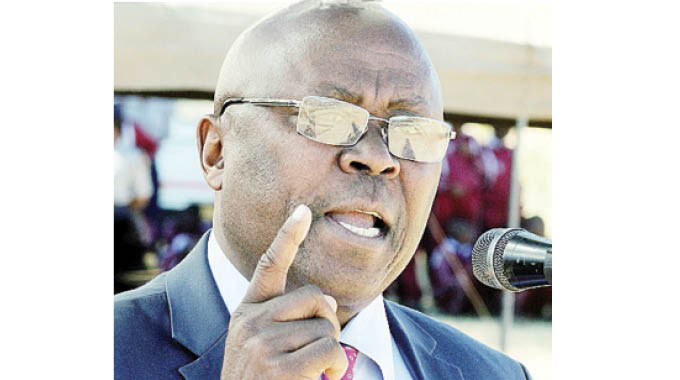Govt committed to digital economy

Gibson Mhaka, Senior Reporter
THE Government is committed to the attainment of a digital economy and a knowledge society by identifying infrastructure the country has in the form of post offices and schools as platforms to help communities access and use information and communication technologies (ICTs).
Information Communication Technology, Postal and Courier Services Minister Dr Jenfan Muswere said this on Friday in Mangwe, Matabeleland South Province during the launch of Bulu Community Information Centre (CIC).
He said CICs were bridging the digital divide by overcoming age, income and gender divides.
Bulu High School provided its computer laboratory, for the CIC that is modelled along the Connect-a-School-Connect-a-Community model whose objectives are to provide primary and secondary schools with computing devices and internet connectivity.
Arrangements were made for community members to also use the facility in the same manner as they would at a basic CIC, without disrupting studies at the school.
“As Government, we have identified the vast infrastructure we have in the form of post offices and schools as platforms to help people access and use ICTs by removing the different divides. The primary means by which CICs drive inclusion is by providing affordable access to ICTs to people who may never have been able to be connected through traditional channels.
“It is my hope that, granting the Bulu CIC the Connect-a-School-Connect-a-Community status would result in maximum utilisation of the facility since local arrangements can be made between community leaders and the school to allow access to the facility by the community at opportune times,” said Dr Muswere.
He said the general objective of the digitalisation agenda was to use the power of technology to enhance peoples’ lives.
“As the Internet continues to evolve and converge with other technologies, we need to take advantage of this development to offer converged services to the people, at convenient locations, including CICs.
“My ministry is therefore, spearheading an initiative that will see post offices being turned into centres offering e-commerce, digital government, and digital financial services, as a way of making these services available within close proximity of the people,” said Dr Muswere.
He said the Government, also welcomed the thrust by Postal and Telecommunications Regulatory Authority of Zimbabwe (Potraz) to bridge the digital divide through the different programmes the regulator is undertaking, to ensure that those in remote rural areas have access to ICTs, with the CICs being one such programme.
Dr Muswere challenged local communities to develop local content that resonates well with their different cultures and languages saying if properly developed and marketed local content can also create employment for the local communities.
He said his ministry was working on the Smart Zimbabwe 2030 Master Plan, which seeks to exploit the potential of ICTs so that Zimbabwe attains its vision of becoming an upper middle-income economy by 2030.
The minister said:
“This Vision is predicated on, among others, building on the achievements of the Zimbabwe National Policy on ICTs of 2016 to 2020 which further strengthens Zimbabwe’s economic base and improves its economic environment for accelerated growth towards achieving a Digital Government, a Digital Economy and a Digital Society, by 2030”.
He said the master plan, once fully rolled out, will completely transform government processes, services and management, and make information access and service delivery more efficient as well as raising the country’s competitiveness and align it in line with vision 2030’s ICT goals.
Potraz director-general Dr Gift Machengete hailed the ministry saying it was leading from the front in ensuring that ICTs play their role in spearheading and facilitating development in the country.
He said initiatives such as the Bulu High School Computer Laboratory project are strategic in ensuring the digital divide is bridged and everyone is at par in the digital economy.
There are 12 CICs in Matabeleland South Province with nine of them — Beitbridge, Gwanda, Jahunda, Maphisa, Plumtree, Shangani, West Nicholson, Zezani and Bulu High School — operating.








Comments